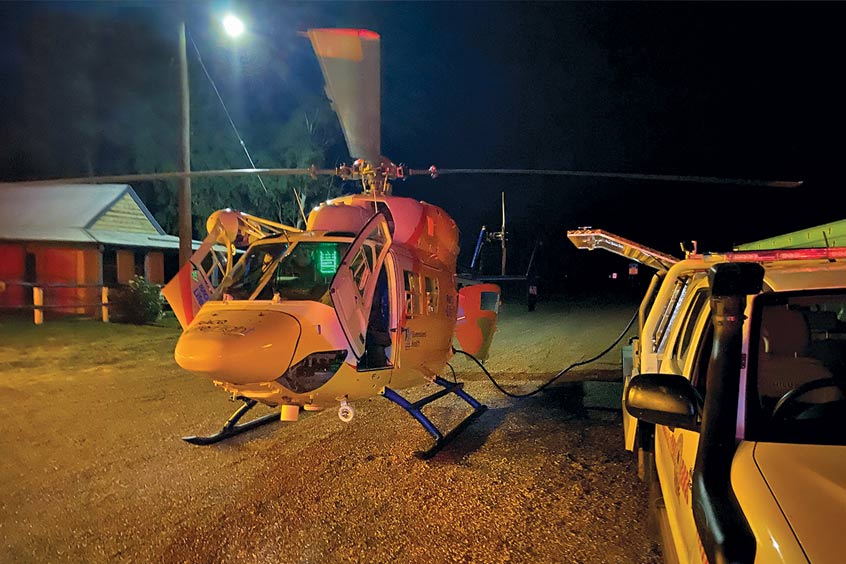Why visit ACE ’25?

The Mount Isa helicopter crew of Australia-based aeromedical service RACQ LifeFlight Rescue has made its response time to missions quicker than ever through a new project with State Emergency Services (SES) and Mckinlay Shire Council.
The Mount Isa aircraft responds to emergencies across a large part of western Queensland and often requires refuelling on long flights. In one search mission in October, the Mount Isa crew flew for almost seven hours, covering huge distances. To avoid the helicopter losing valuable time by having to stop at airfields during such a mission, local SES crews in the McKinlay Shire have custom built a trailer that carries fuel drums for the helicopter. Instead of the chopper flying to the fuel, the SES now delivers the fuel to the chopper.
In a recent mission to Kynuna to help a patient in a vehicle rollover, the SES towed the fuel trailer while the RACQ LifeFlight Rescue crew flew non-stop to the scene.
While the flight paramedic treated the patient, the aircrew was able to refuel the helicopter at the same time. The on-scene process saved two diversions to refuel and cut at least an hour off the length of the mission, meaning the patient was airlifted to Mount Isa Hospital sooner.
"The fuel trailer initiative means we can service more areas in the community, because the crews aren't restricted by where they will need to stop for fuel," says LifeFlight general manager of operations Brian Guthrie. "For the patient, it also decreases the time between receiving care at the scene and in a hospital. Helicopters can't travel as far as planes in one trip, but they can access more areas and land in more challenging terrain, which makes the RACQ LifeFlight Rescue service so vital to the community."
The drums are distributed in various locations across northwest Queensland, with the cost of fuel funded entirely by LifeFlight.
"This has been a game changer for our community in Mckinlay Shire " adds SES volunteer Stephen Malone. "We've been able to expand our capability and range to extract people from remote locations. We've always worked closely with LifeFlight, the council and the Queensland Ambulance Service, and this is only going to improve those relationships."